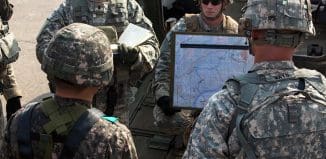NSA Spy Program Useless Against Terror
This post is also available in:  עברית (Hebrew)
עברית (Hebrew)
 An analysis of 225 terrorism cases inside the United States since the Sept. 11, 2001, attacks has concluded that the bulk collection of phone records by the National Security Agency “has had no discernible impact on preventing acts of terrorism.”
An analysis of 225 terrorism cases inside the United States since the Sept. 11, 2001, attacks has concluded that the bulk collection of phone records by the National Security Agency “has had no discernible impact on preventing acts of terrorism.”
According to National Security in the majority of cases, traditional law enforcement and investigative methods provided the tip or evidence to initiate the case, according to the study by the New America Foundation, a Washington-based nonprofit group.
The study, corroborates the findings of a White House-appointed review group, which said last month that the NSA counterterrorism program “was not essential to preventing attacks” and that much of the evidence it did turn up “could readily have been obtained in a timely manner using conventional [court] orders.”
Under the program, the NSA amasses the metadata — records of phone numbers dialed and call lengths and times — of virtually every American. Analysts may search the data only with reasonable suspicion that a number is linked to a terrorist group. The content of calls is not collected.
The new study comes as President Obama is deliberating over the future of the NSA’s bulk collection program. Since it was disclosed in June, the program has prompted intense debate over its legality, utility and privacy impact.
iHLS – Israel Homeland Security
Senior administration officials have defended the program as one tool that complements others in building a more complete picture of a terrorist plot or network. And they say it has been valuable in knocking down rumors of a plot and in determining that potential threats against the United States are nonexistent. Director of National Intelligence James R. Clapper Jr. calls that the “peace of mind” metric.
In an opinion piece published after the release of the review group’s report, Michael Morell, a former acting CIA director and a member of the panel, said the program “needs to be successful only once to be invaluable.”
In at least 48 instances, traditional surveillance warrants obtained from the Foreign Intelligence Surveillance Court were used to obtain evidence through intercepts of phone calls and e-mails, said the researchers, whose results are in an online database.
More than half of the cases were initiated as a result of traditional investigative tools. The most common was a community or family tip to the authorities. Other methods included the use of informants, a suspicious-activity report filed by a business or community member to the FBI, or information turned up in investigations of non-terrorism cases.






























